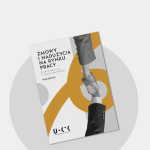
- Restricted competition while attracting employees - this could be the outcome of the suspected collusion between Jeronimo Martins Polska and transport companies.
- Tomasz Chróstny, President of UOKiK, has initiated proceedings against 33 entrepreneurs and eight individuals.
- Let us remind you that collusions on the labour market are illegal. For detailed information, please see our guide.
Tomasz Chróstny, President of UOKiK, has pressed charges against Jeronimo Martins Polska - the owner of the Biedronka chain, as well as 32 transport companies and eight managers and business owners that could have been directly responsible for a competition-restricting arrangement.
The hypothetical outcomes of the suspected collusion scheme could be as follows: Paul was working, for several years, as a driver for a transport company that was cooperating with the Biedronka chain. Discouraged by his salary not being increased, he decided to leave and find a job with another carrier serving the same Biedronka distribution centre, hoping he would enjoy better employment conditions there. However, his application was rejected, despite having the necessary qualifications and experience. As he learned unofficially, his application was blocked because the transport companies had agreed not to allow their drivers to change employers, and the retail chain was making sure this agreement was being kept. As a result, Paul could not find a new employer in the region for 3 months.
– We suspect that transport companies and Jeronimo Martins Polska reached an agreement aiming to restrict drivers’ ability to move between enterprises that were serving Biedronka’s distribution centres. By relying on this practice, economic operators could be striving to avoid mutual employee “poaching”. Such an approach not only violates competition protection laws, but is also unacceptable form the human point of view. All of us should be able to freely choose and change their place of employment – says Tomasz Chróstny, President of UOKiK.
The transport companies could agree to take anti-competitive measures at specific distribution centres, and the owner of the Biedronka chain could coordinate those efforts at various centres throughout Poland, simultaneously overseeing compliance with the arrangements by blocking drivers who wanted to change their employer from entering their premises. The entrepreneurs could have agreed that if drivers who were previously employed by a carrier serving a given Biedronka distribution centre wanted to get hired by another transport company, they would not be allowed to work for a new employer over a specific period of time (usually lasting three months). From the point of view of transport companies, such a practice would minimise the risk of losing employees for the benefit of their competitors, simultaneously limiting the professional mobility of drivers and mitigating their chances for higher salaries.
Arrangements not to compete for employees, also known as no-poaching agreements, are legally prohibited, as they affect an important factor shaping competition between employers – namely the wages offered to employees. Such agreements may lead, inter alia, to lower salaries or to wages that do not increase as quickly as they would in a situation where such a collusion had not existed.
For more information on collusion schemes on the labour market, please see our publication entitled “Collusion and Abuses on the Labour Market” published in July 2024. By relying on specific examples, the document describes, in a simple manner, what practices may be deemed to violate the law.
An enterprise involved in a competition-restricting agreement faces a fine of up to 10% of its revenue. The managers responsible for entering into the price-fixing arrangement face a fine of up to PLN 2 million.
Severe penalties for participation in collusion can be avoided by taking advantage of the leniency scheme. It offers businesses involved in an illegal agreement and managers responsible for entering into a collusion arrangement an opportunity to reduce a sanction or, in some cases, avoid it altogether. It is intended for those who agree to cooperate with the President of UOKiK as a “crown witness” and provide evidence or information regarding the existence of a prohibited agreement. We encourage those interested in the leniency scheme to contact the Office at a dedicated phone number: 22 55 60 555. UOKiK staff will answer any questions about the leniency programme, including anonymous ones.
We also remind you that we operate a programme to obtain information from anonymous whistleblowers. Do you wish to inform UOKiK about competition restricting practices? Visit https://uokik.whiblo.pl/ or scan the QR code below and use the simple form. The system we use guarantees complete anonymity, including from UOKiK itself.
Information for the media
| +48 603 124 154 | |
| biuroprasowe@uokik.gov.pl | |
 | pl. Powstańców Warszawy 1 00-950 Warszawa |



















